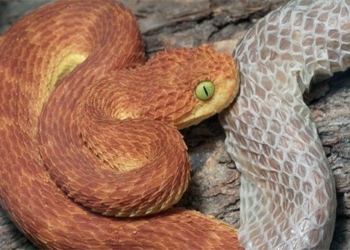Almost all mammals have long fur covering their bodies, but humans have very little and only possess hair on our heads. So why does this happen?
First, it is important to understand why mammals are born with fur. Mark Pagel, an evolutionary biologist at the University of Reading, UK, states that fur keeps animals warm during cold nights and protects their bodies from the sun during the day.
Our human ancestors lost most of their body hair because they had the ability to protect themselves with fire, shelter, and clothing. According to scientists, the lack of fur may have caused humans to lose some evolutionary advantages. Therefore, the loss of most body hair in humans can be explained by the following three hypotheses.
First, a thick layer of fur could have made ancient humans too hot under the blazing sun at noon. Pagel says: “If you were wearing a huge fur coat in Africa during the summer, you would feel extremely hot. It would be great to take that big fur coat off your body. That’s what humans did with their fur.”

Hair on the head (hair) is denser than on other parts.
Furthermore, humans have developed a more extensive sweating system than our primate relatives. Yana Kamberov, a genetics expert at the University of Pennsylvania, states: ‘If we had long hair on our bodies, it would become soaked with sweat, making it difficult for sweat to evaporate and for the body to cool down.’
However, this hypothesis does not explain certain aspects of human body hair, such as why men tend to have denser body hair than women. At the same time, it does not clarify why the hair on the head is denser than on other parts.
The second hypothesis suggests that ancient humans lived in aquatic environments for extended periods. Long hair would have made it difficult for our ancestors to swim, leading to its gradual loss. However, this hypothesis faces the problem of lacking evidence that humans spent long periods underwater during evolution. Additionally, it does not explain why humans did not evolve to regrow hair on their bodies after transitioning from an aquatic to a terrestrial environment.
Pagel proposes a third hypothesis, known as the ectoparasite hypothesis, in research published in 2003 in the journal Proceedings of the Royal Society B: Biological Sciences. This hypothesis suggests that ectoparasites are parasites that live outside the host’s body. They include lice, fleas, and ticks, and are significant causes of disease. Parasites may be less attracted to hairless skin. Additionally, humans could more easily remove them with less hair on their bodies. Therefore, having less hair corresponds to having fewer parasites and a higher survival rate.

Less hair corresponds to having fewer parasites and a higher survival rate. (Illustrative image).
However, if the above hypothesis is correct, why does hair still grow on our heads? Pagel suggests that humans, being bipedal animals, walk upright, and their heads are directly exposed to sunlight. Living near the equator, sunlight can be very harmful, and humans may have developed hair to avoid overheating. Pagel states: “The hair on our heads acts like a built-in hat for humans.”
Moreover, the hair on the head also helps retain heat at night. Pagel explains: “Our brain is relatively small compared to the rest of the body but is metabolically very active. Having hair on the head helps protect this process.”
Humans have valued hair since ancient times and have styled it. Scientists have studied indigenous people who are still alive today and have not been exposed to the outside world. They found that these individuals also style their hair. This indicates that our ancestors knew how to style their hair. Pagel suggests that taking care of hair helped our ancestors attract potential mates.




















































